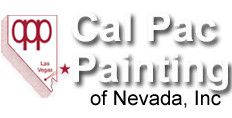 I am going to save my planned article for another time. This is not a fun read but I would urge you to continue. As I write this message, I am listening and watching the reports from Boston of the despicable and sick acts of terrorists, domestic or foreign, that have murdered at least two and injured dozens. By all current reports, Boston was prepared; from their rescue and security forces to the hospitals where the injured were taken. They have developed their disaster plans, rehearsed them and rehearsed them again.
I am going to save my planned article for another time. This is not a fun read but I would urge you to continue. As I write this message, I am listening and watching the reports from Boston of the despicable and sick acts of terrorists, domestic or foreign, that have murdered at least two and injured dozens. By all current reports, Boston was prepared; from their rescue and security forces to the hospitals where the injured were taken. They have developed their disaster plans, rehearsed them and rehearsed them again.
I am not suggesting you and your business will experience a disaster of this magnitude but I am asking ‘Do you have a Disaster Plan?’. About 10 years ago, we noticed (and smelled) a gas leak in the street adjacent to our office. We called the gas company. Within minutes the gas company and the fire department arrived with lights flashing. We were immediately escorted out of the office and told to go together to a safe area and not return until they let us know it was safe. We didn’t have a Disaster Plan. We didn’t have an exit plan, know where to meet outside the building or know who to call.
Disasters come in all different forms these days. Fire, floods, gas explosions are our first thoughts but, we now hear about crazies with guns, knives, bombs. Your office could be broken into and vandalized. No matter how small you think your business is, cyber-attacks and computer hacking can happen to anyone of us. The death of a key employee can be put onto this list. Hopefully none of these disasters will happen to you but, you need to be prudent and ready.
A Disaster Plan is a written document. A hard copy should be maintained at your office, your home, the home of your key personnel as well as on your office computer, your home computer, your tablet, etc. It should cover all of your critical information arranged in one document. Some items to include are: personnel list with cell and home phone numbers with contact name for emergency purposes, bank account numbers with your contact’s information, insurance policy information with your contact’s information, attorney’s contact information, etc. Include your landlord’s contact information or if you own the building, list your Assessor’s Parcel Number and lender with contact information.
It should include an exit plan similar to the plan required by the local fire authorities, where do your employees meet if they have to leave the building, who makes sure everyone is accounted for, who is in charge.
If the media shows up and wants an interview, make sure someone is designated to speak to them. Improper or incorrect information released too early can create more headaches than you need at a very stressing time.
It is my wish that your Disaster Plan be prepared, kept up-to-date and never used. Good luck.
Linda Harris, CCA
Sounding Board LLC
702-497-4656
http://www.soundingboardlv.com



